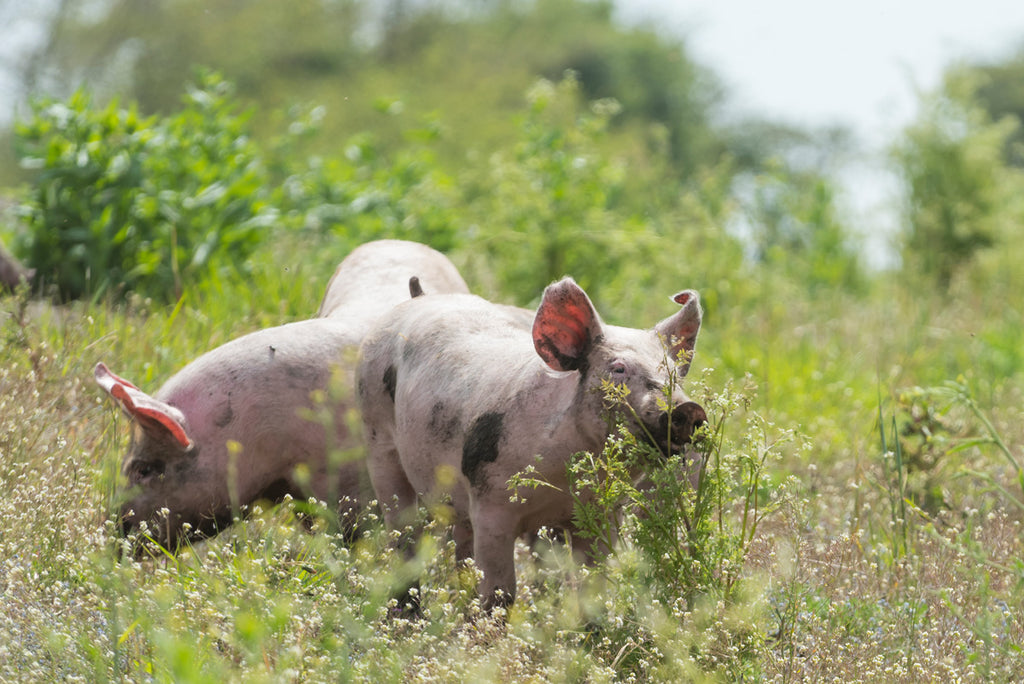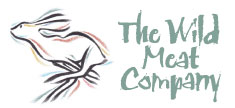Herbs and Wild: Meet the Foraging Chef, Hannah Thomas
by Robert Gooch March 23 2020
We’re always excited to meet someone as passionate about wild food as us – and nothing inspires Hannah Thomas more than the flavours and possibilities of wild meat and foraged edibles. As well as hosting regular Supper Clubs, the chef, forager and founder of Herbs and Wild holds workshops on preserving, fermentation and baking with wild yeast sourdough, while developing recipes that showcase wild ingredients. Read on to discover the inspiration behind Hannah’s wild food journey and her favourite ingredients to combine with game – then try two of Hannah’s delicious recipes, shared exclusively with the Wild Meat Company.

Did you always want to be a chef?
"No! During my final year at university I decided I wanted to carve a career in food and so signed up for the three month Ballymaloe cookery school certificate course in the hope of finding a niche. I never thought I’d want to be a chef in a restaurant kitchen environment, despite enjoying programmes like Great British Menu and admiring the chefs’ creativity growing up."
Where did your passion for cooking with wild ingredients spring from?
"I have clear childhood memories of Mum making elderflower cordial in early summer and picking blackberries in autumn to make crumbles and jam. These activities opened my eyes to what nature’s pantry has to offer and let me experience the simple pleasure of gathering wild food to use in the kitchen. At Ballymaloe, my knowledge of wild edibles expanded, and I enjoyed foraging seaweed from the nearby coast. My love of being outdoors in nature and making the most of, and connecting to, the surrounding landscape underpins my passion for wild food."
How important was your time at Ballymaloe Cookery School and The Ethicurean?
"That year (September 2017–18) was hugely important. At Ballymaloe, I discovered my passion for food sustainability, sourdough baking and fermentation, and my cookery skills were taken to the next level. Falling into a chef job at The Ethicurean immediately afterwards enabled me to put my new-found skills into practice. I learnt how to operate in a commercial kitchen, my efficiency improved, I gained stamina for working long shifts in a fast-paced environment, and I was given creative freedom to contribute to the menu. I also learned more about foraging and fermentation."

Who else has inspired or influenced you along the way?
"Watching Hugh Fearnley-Whittingstall’s fish, allotment growing and factory farming campaigns growing up definitely caught my attention and influenced my understanding and thoughts around these matters. I later had the pleasure of meeting him at the River Cottage Canteen in Bristol. Gather, the first book from River Cottage’s founding Head Chef, Gill Meller, also inspired me with its rustic recipes, celebrating herbs and wild game. And whilst living in Bristol I met food writer, Clare Hargreaves, who has become a bit of a mentor and a good friend, connected by a shared food philosophy."
Where do you forage and what are your favourite finds?
"I forage in all sorts of places! My parents live in the countryside on the Hampshire/Wiltshire border so I always go for a forage when I’m back visiting. Favourite finds there include meadowsweet and wild garlic. We sail in Chichester harbour in the summer months and when we stop at West Wittering beach I always get straight to picking marsh samphire, sea spray and sea purslane to (hopefully) go with some freshly caught mackerel. I’m currently living in London and have been surprised by the urban foraging opportunities – there’s gorse, magnolia, sloes, elderflower – the list goes on!"

Which herbs and foraged ingredients do you like to combine with game?
"Venison: blackberries, elderberries, juniper, horseradish.
Mallard/wild duck: Scot’s pine, damson.
Rabbit: wintercress, wild garlic, dandelion.
Wild boar: cobnuts, crab apples, black truffle, yarrow.
Pheasant: medlar, quince, wild mushrooms, bay."
What is most important to you when sourcing meat (farmed or wild)?
"I look for grass-fed, free-range, organic and high welfare, as well as meat that supports biodiversity and sustainable farming practices, e.g. by being low input."

What tips can you share for cooking game at home
- Cure or brine. The electrically charged ions of salt plump up muscle fibres, allowing them to absorb water. This changes the structure of the proteins, preventing water from escaping during cooking, thereby preventing the meat drying out. In addition, salt greatly enhances the flavour, and herbs, spices or citrus can also be added for further complexity.
- Marinate – this tenderises and adds flavour. Try marinating partridge in a spiced yoghurt overnight before cooking.
- Add fat by confit, barding or larding – game is as free-range as it gets and slow-growing, so the meat tends to be very lean. Confit involves low and slow cooking immersed in fat and is a brilliant way to keep meat unctuous. Alternatively, wrap game in a fatty meat such as streaky bacon (barding) or insert small lardons through the surface of the meat (larding). Both techniques help keep the meat moist and give a lovely salty flavour.
What is your favourite game dish to cook for yourself?
"Whole rabbit, jointed, and stewed in a herby cream, cider and pearled spelt sauce, served with dressed leeks and roasted broccoli. All mopped up with some crusty homemade sourdough."
Head to our Recipes section to find two recipes Hannah has shared exclusively with us: pan-fried pheasant with pear and bay and venison rillettes on sourdough or find out more about Hannah and her pop-up events visit Herbs and Wild

